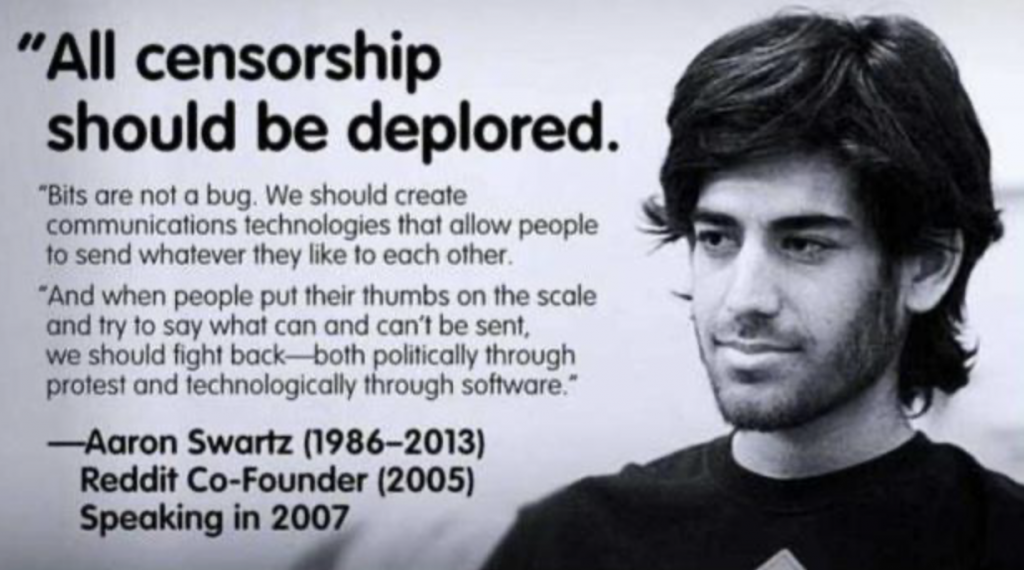It has become abundantly clear in these times that the major social media platforms and search engines we use to get information and to communicate with our friends the world over, are less than transparent and that several of them actually engage in censorship of “unwelcome” views and information.
Since many of our interactions happen through these electronic means of communication, this is a less than satisfactory state of affairs. It actually constitutes serious interference in our freedom of expression and our ability to form views to express.
Censorship of views, the skewing of search results and deliberate deviation away from certain topics of discussion, have no place in a free society. I would therefore like to introduce a concept, a principle that needs to find its way into our legislation and perhaps more than that, into networking codes of practice. It is the concept of platform transparency.
What is platform transparency?
Any publicly accessible platform used by a certain number of people, for example search engines and social media platforms, but also publishers and big tech providers as well as educational platforms, must make their algorithms and their rules of interaction publicly accessible…
That means, their algorithmic code which determines what you are going to see and which of your friends see what you write, must be open to inspection and discussion. Sometimes decisions are made by artificial intelligence (AI), determining for instance what search results are made available to you, as in the case of search engine queries. In this case, the basic choices and parameters that the AI works with, must be made public.
Groups
To be clear, this has nothing to do with how groups that are established on social networks to discuss or inform on certain topics are run by their owners and administrators. Those fora are owned by the founder or owner, by the person who established them and who “sets the tone” of what is to be discussed. In a group, the owner is king and administrators and moderators are helpers appointed by the owner. Administrators should not have the power to “take over” a group and remove the original owner.
Further, with regard to groups on social media, it should be possible to archive an inactive group. It goes without saying however that a platform may not “remove” a group that has been formed and whose members are actively discussing, in order to suit someone’s desire of preventing or cutting short the discussion of certain topics.
Platforms
Platform transparency is directed at platforms, the “walled gardens” of the internet as they have also been called. This includes multimedia platforms like those hosting videos, where algorithms are used to inform you or not of new content, to suggest or encourage you to see some videos or to stay away from certain others.
Platforms have incredible power to direct our thinking, to influence our political choices, to determine what we are discussing and and what information we share. The idea of platform transparency is to prevent governments and other powerful interests from skewing the discussion between individual users. Platforms provide a public service and it is ultimately the users who, by their interactions with others, determine the value of the platform.
Since the users provide the value, it makes only sense that they should have a minimum of control in the sense that, after inspecting and considering algorithms and basic rules of a platform, anyone can freely decide whether to support a platform by their presence or not.
Real transparency, legally enforced, is the only way to ensure that our interactions are not hijacked by special interests hiding in the shadows, behind opaque rules that are “for the good of us all”.
No “forbidden” themes.
In the interests of general transparency, censorship, whether by algorithms or by ad hoc intervention, should NEVER be employed. If something is criminal, let the law take care of it. If it isn’t, the information should be open for discussion and viewing. Parents or guardians may wish to limit what children are allowed to see on the internet. That is their privilege and responsibility.

FAGMA …
The technological behemoths that today are to a large extent determining what information we get and that are therefore steering our lives have been called FAGMA by a friend of mine … meaning the Facebooks, Amazons, Googles, Microsofts and Apples of this world. I am sure there are others, but those seem to be the major ones.
Platform transparency is a way to start levelling the playing field, to give users the tools they need to decide where to take their business and to make that choice after having correct and complete information.

